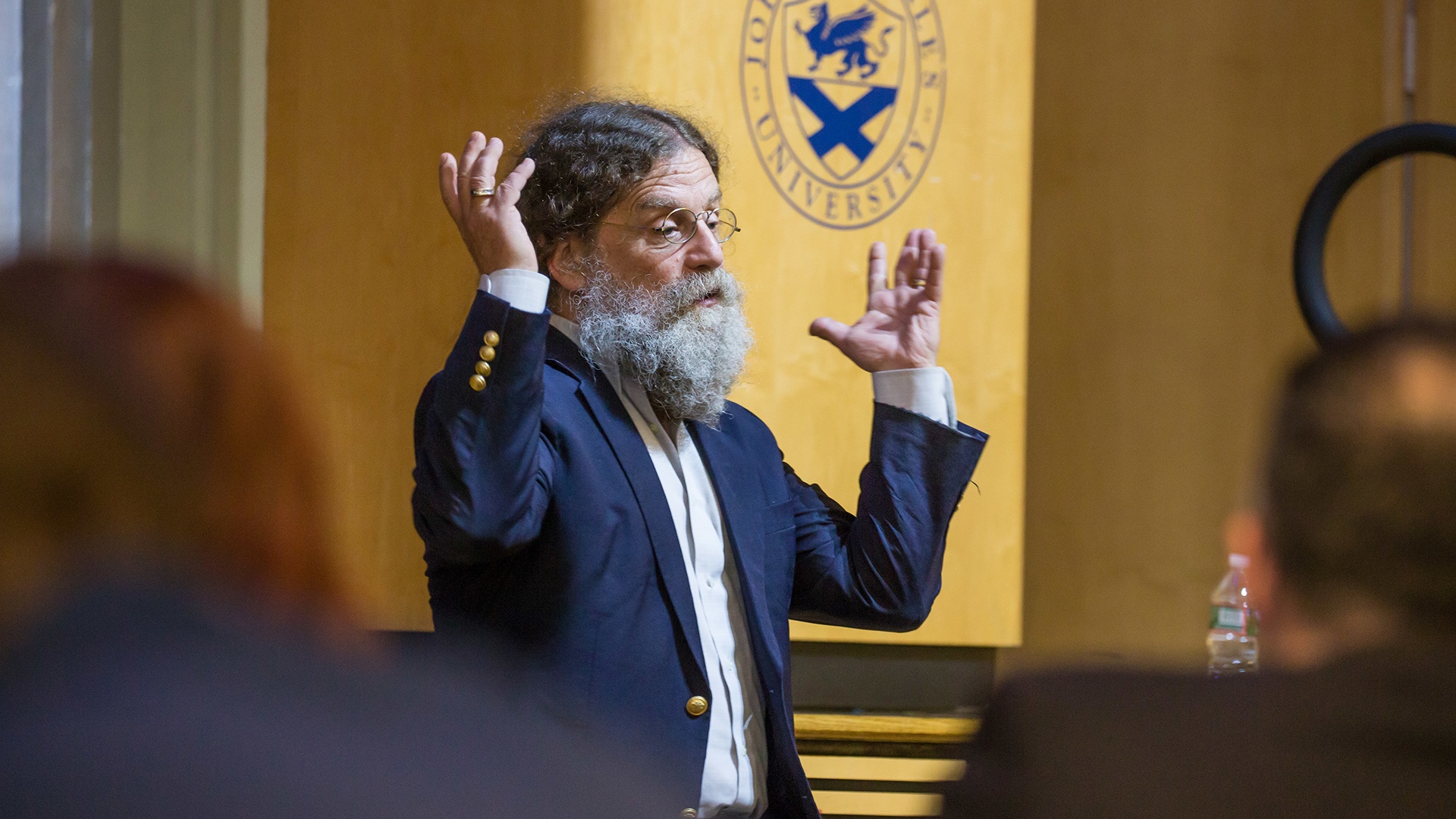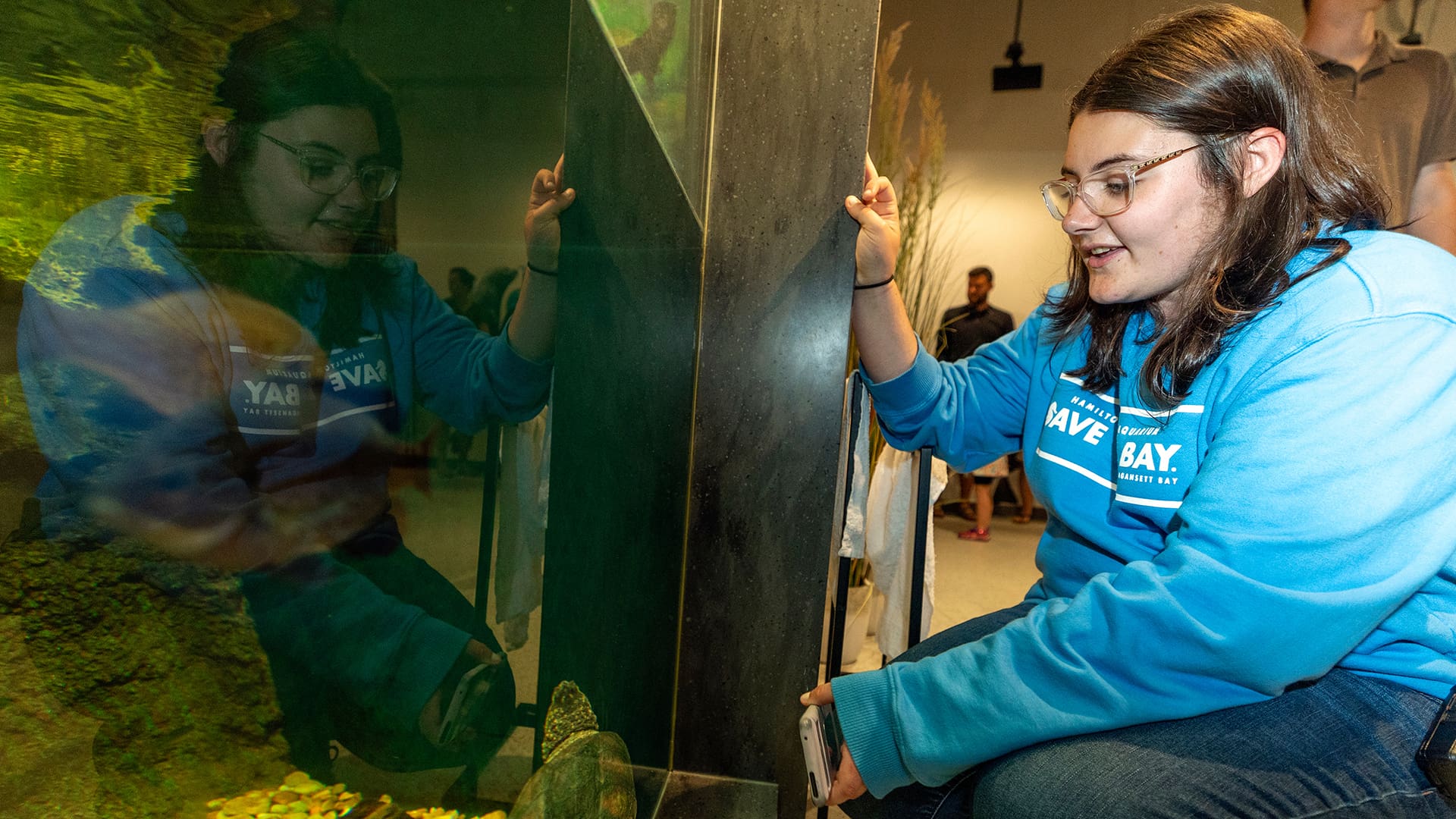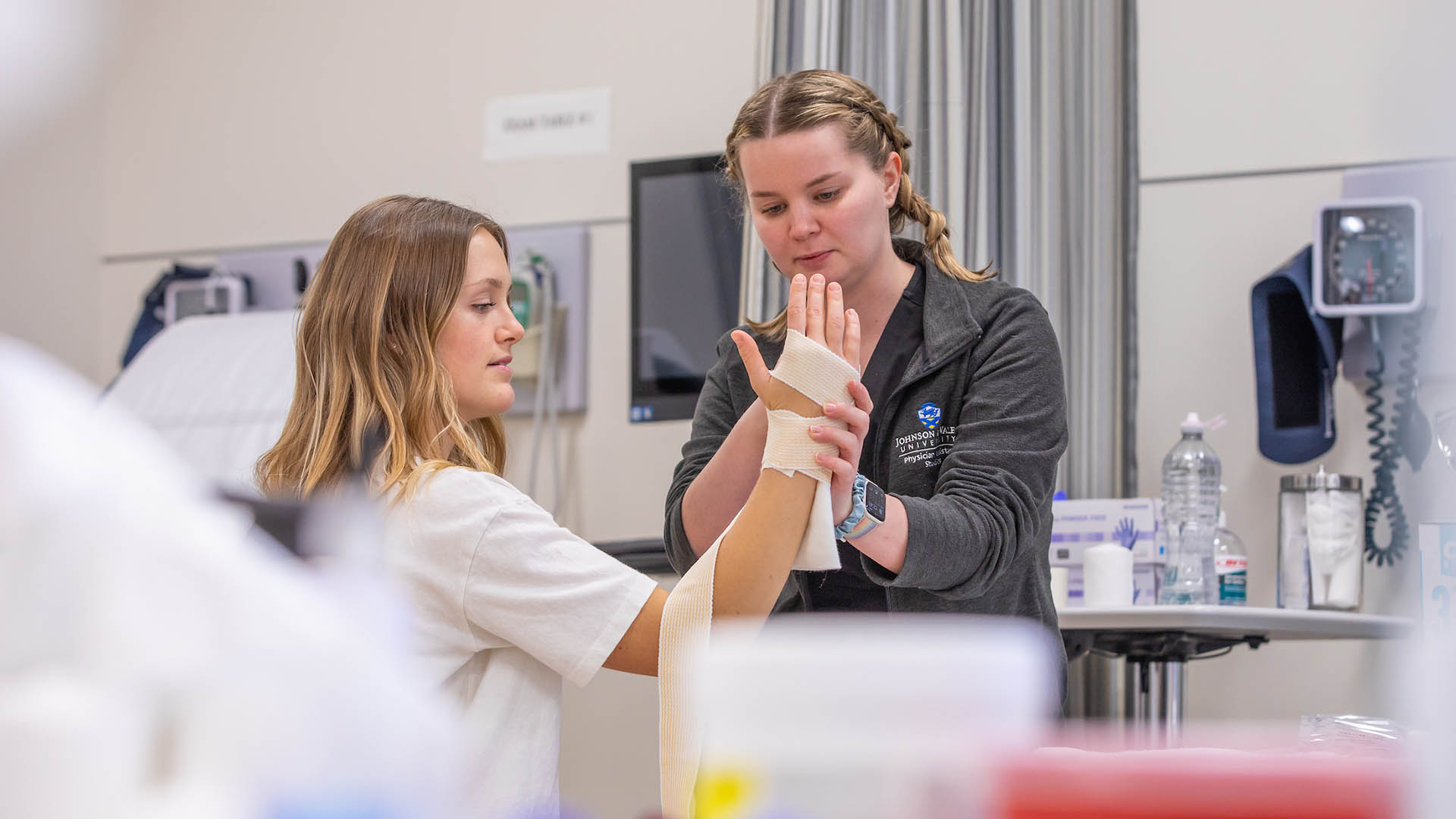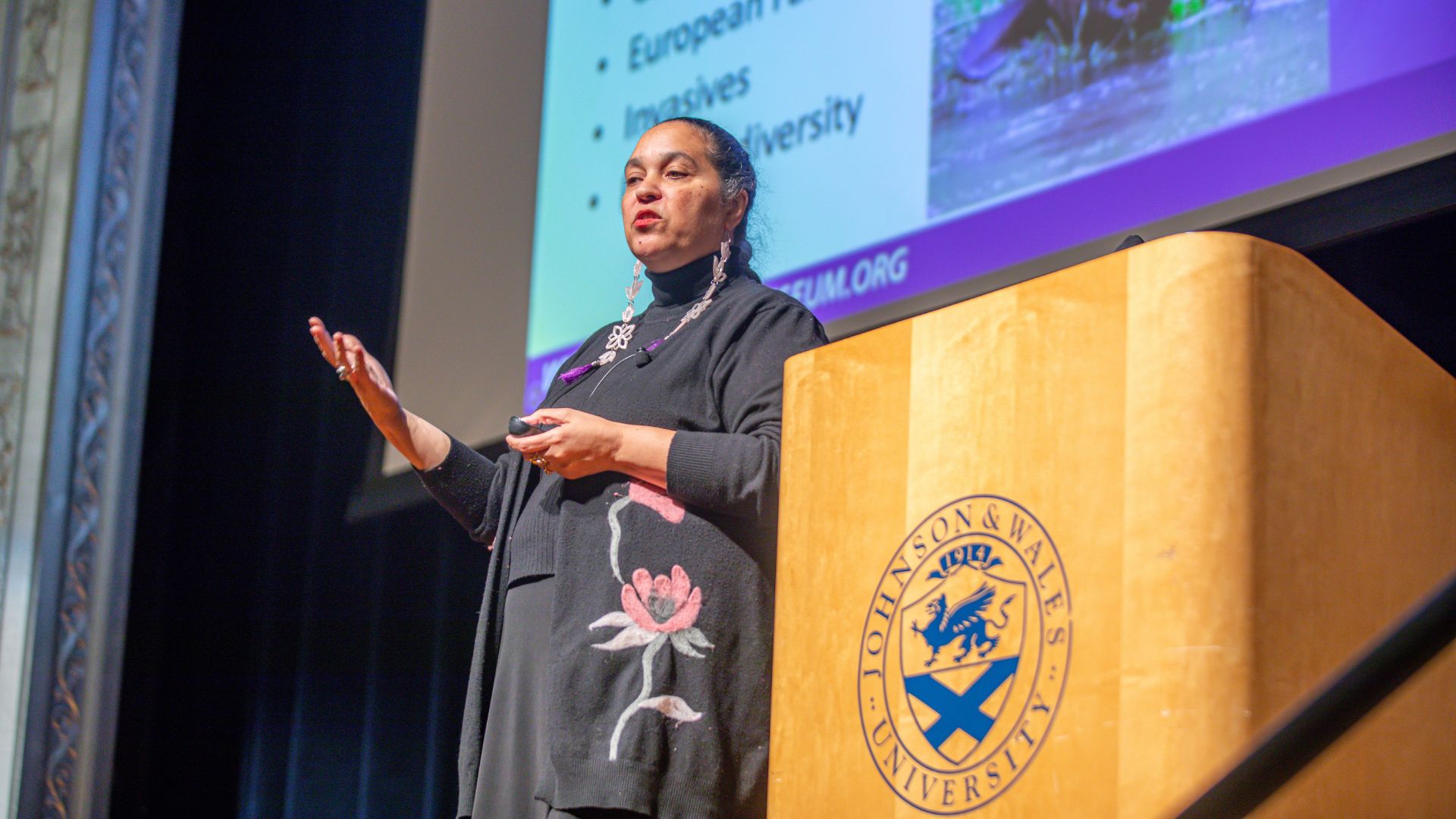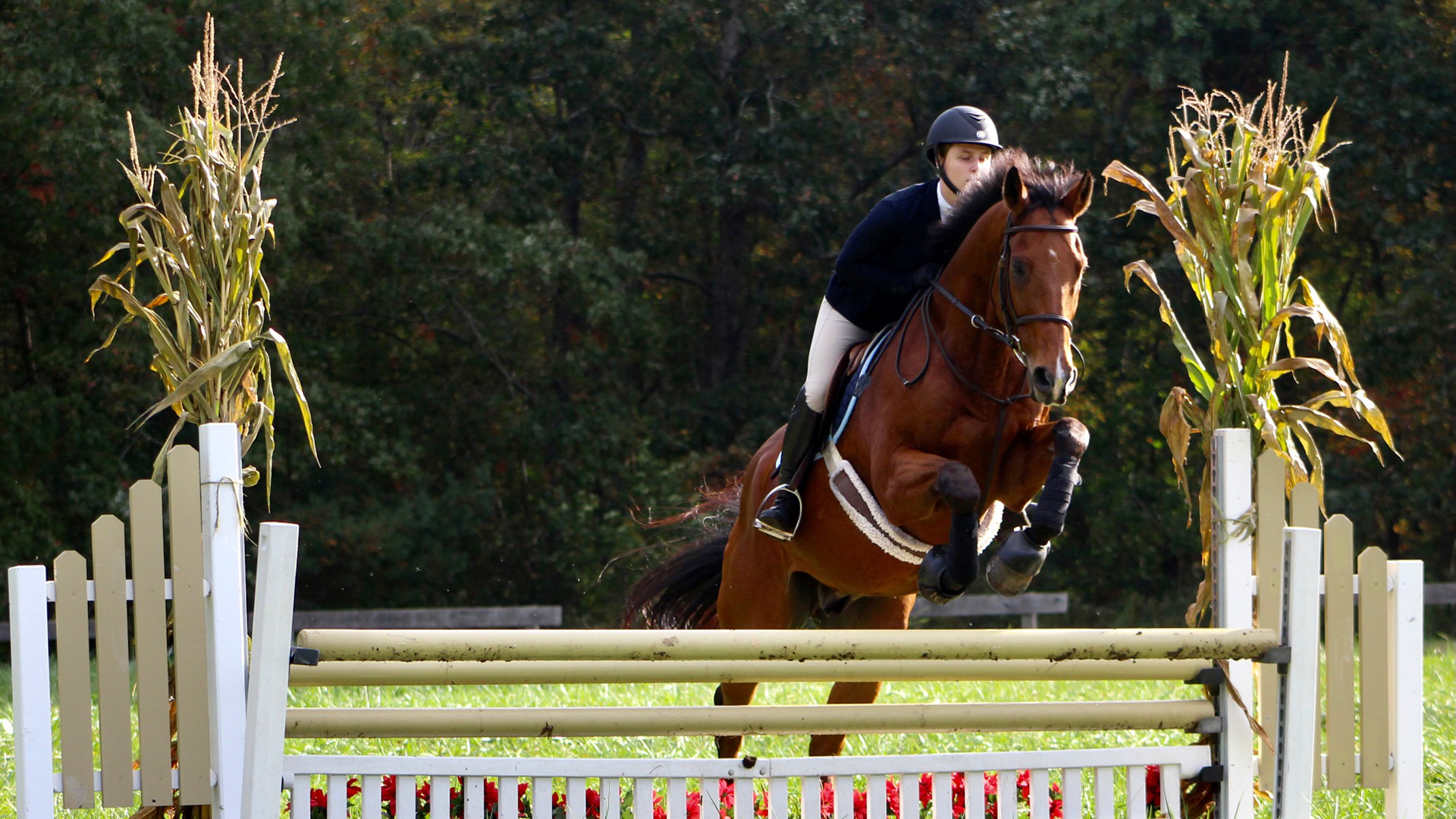Understanding Why We Do What We Do With Neuroscientist Robert Sapolsky
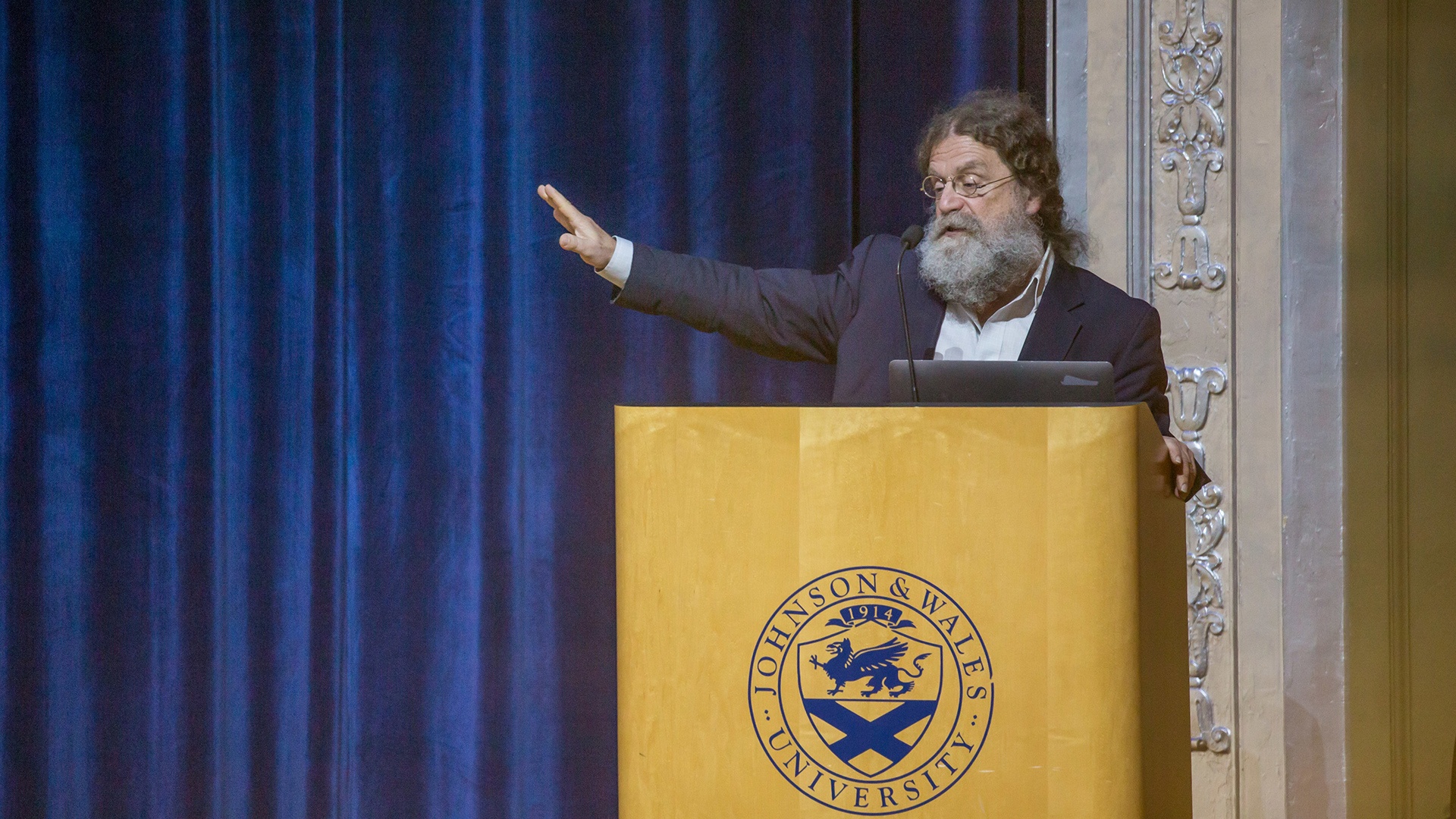
Stanford neuroscientist and primatologist Robert Sapolsky is fascinated by the biology behind human behaviors — including his own best and worst impulses. He opened his recent talk at JWU’s Providence Campus by vividly describing an oft-recurring fantasy of arresting and torturing Adolf Hitler.
“I've had these thoughts since I was a kid, and still often do,” he said, “and when I do, my heart speeds up, my breathing gets faster, thinking about what I would do to the most evil, wicked soul in history. But there's a problem—I don't believe in souls or evil and I think the word 'wicked' only belongs in a musical. There are plenty of people who I would like to see killed, but I'm against the death penalty.” Sapolsky went on to call out more of his contradictory beliefs only to conclude: “In other words, I'm your basic confused human when it comes to violence.”
From Living in Brooklyn to Studying Baboons
Sapolsky will be the first to tell you he was “one of those impossibly early obsessed” children, realizing he wanted to study primates at the age of 8. He started writing fan letters to primatologists when he was 12 years old and began studying Swahili in high school, to help him when he would inevitably travel to Africa. He went on to spend 33 summers studying the same population of baboons in Africa.
“I realized once I was out in the field there are two types of people who become primatologists,” Sapolsky said. “About two-thirds of the population grew up in exotic and exciting locations, most likely because their parents had held similar positions. The other third of them grew up in god awful urban areas they couldn't wait to leave. I was in the latter category.”
A Brooklyn-native, Sapolsky found solace in the Museum of Natural History until he was able to leave and study biological anthropology at Harvard University. He now teaches at Stanford University, and has written popular science bestsellers like “Why Zebras Don't Get Ulcers” (2004) and, most recently, “Behave: The Biology of Humans at Our Best and Worst” (2017).
"Free will is just biology we haven't discovered yet."
Understanding the Meaning of Behavior
Sapolsky argues that the real challenge to understanding the aforementioned confusion when it comes to violence is understanding the biology of the context of our behaviors. “You are going to get nowhere if you decide 'here is the part of the brain that caused this behavior',” he said.
Instead we need to look back “one second, seconds to minutes, hours to days, weeks to months, back to adolescence and childhood and fetal life, back to fertilized egg, and back millennia before that to understand why a person acted the way they did,” Sapolsky explained. The answer is in the evolution, not only of the individual, but in primates as a species.
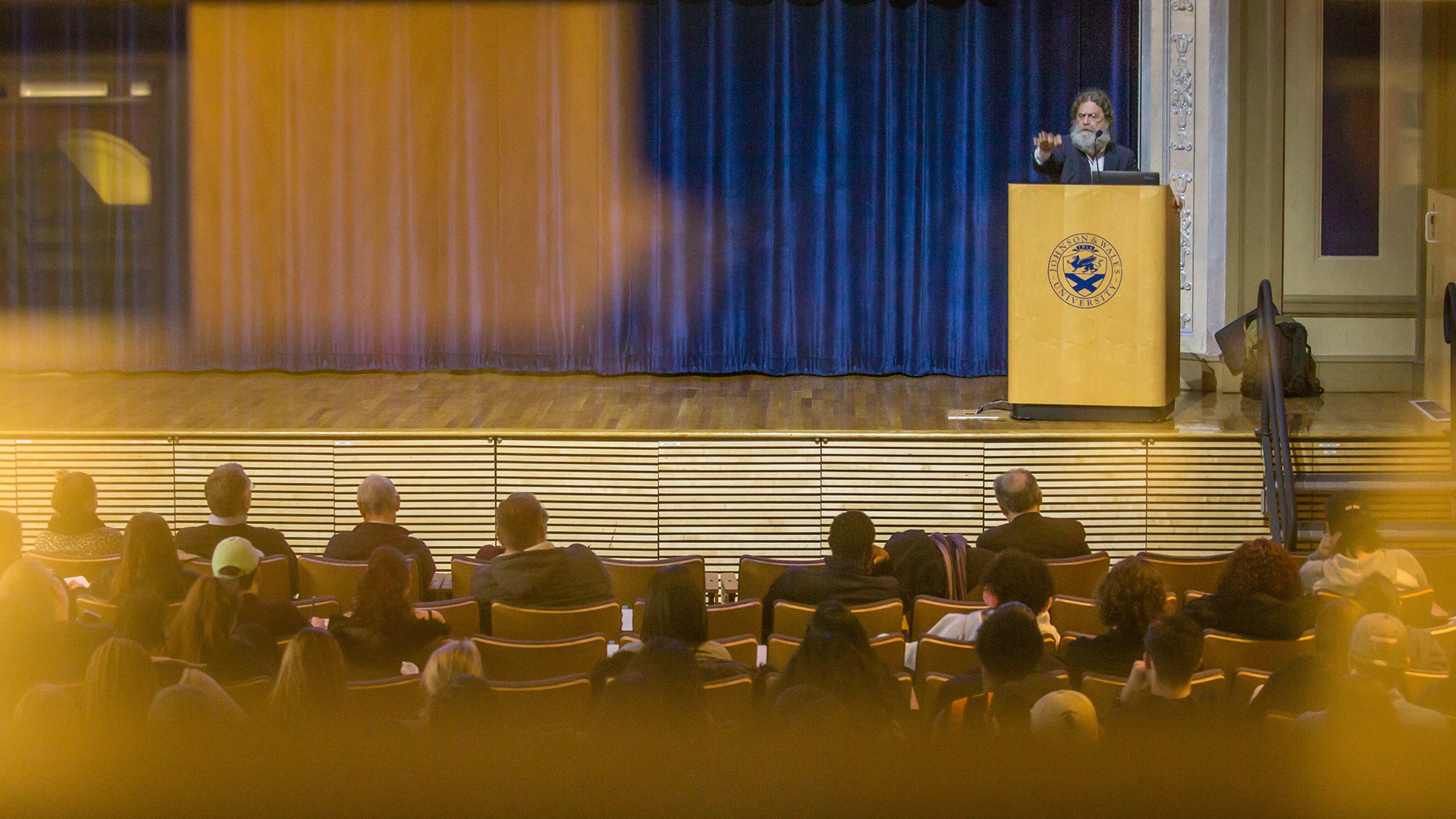
Sapolsky discussed a number of hormones and areas of the brain that impact our perceptions, actions and reactions, biological or learned. The part of our brain that plays the biggest role? The frontal cortex—the area of the brain that is both the most recently evolved as well as the last part of the brain to fully mature. This area of the brain houses impulse control, as well as long-term planning.
“A person with frontal cortex damage is like a car whose brakes won't work,” Sapolsky explained. But this doesn't mean that everyone with brain damage will do something awful. There are all kinds of other contributing factors, he argues. There's neurobiological development, adverse childhood experiences, and parental stress, to name a few. “The question is: how leaky was the engine before this event occurred?” Sapolsky said. “The punchline: it's very complicated, so you better be sure you understand what's going on before you determine you understand why someone did what they did. Free will is a biology we haven't discovered yet.”
